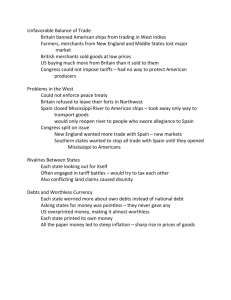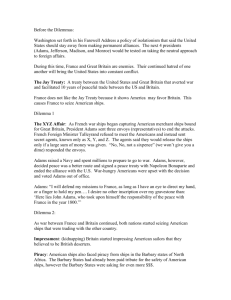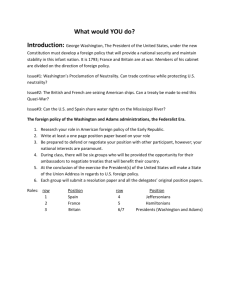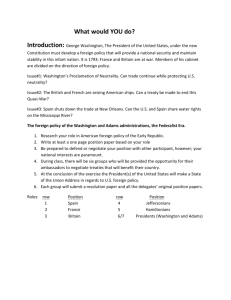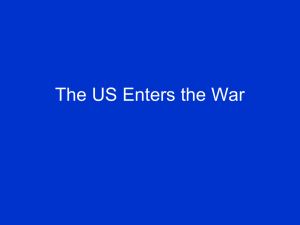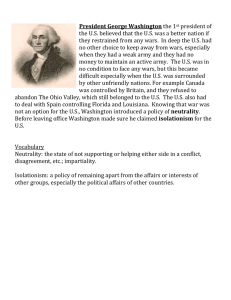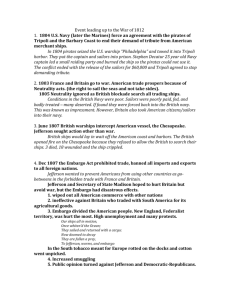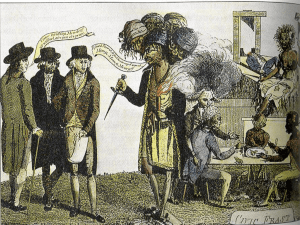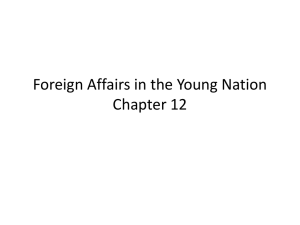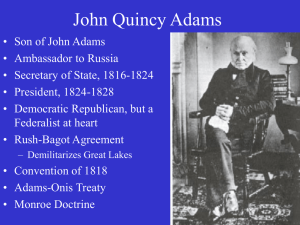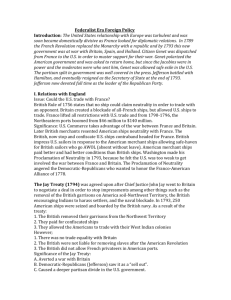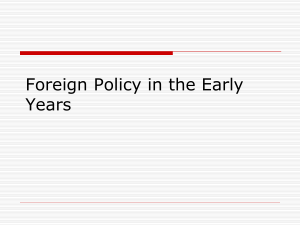US.TCI.C12ForeignPolicyNewNation
advertisement
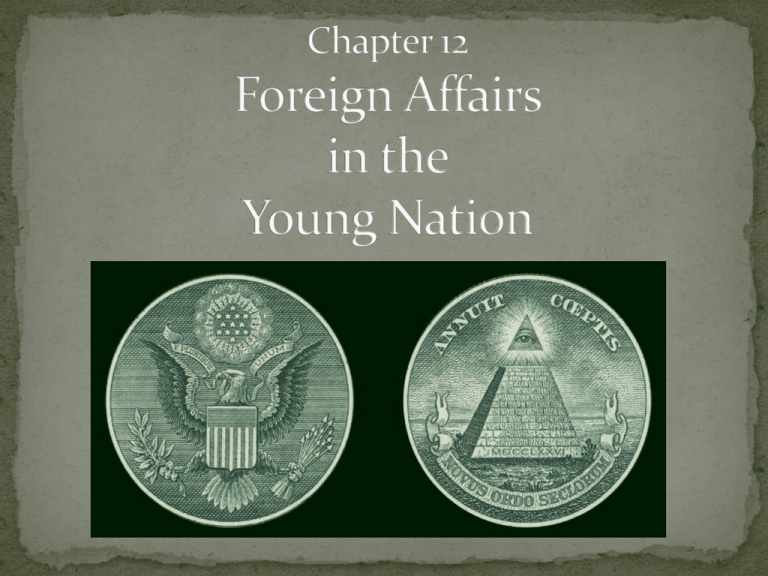
Problems/Threats British controlled Canada British had forts on U.S. land (Ohio Valley) Spain had Florida & Louisiana France & Britain at war Should U.S get involved? neutrality - don’t choose sides - don’t help France or Britain isolationism - avoid alliances - keep to ourselves US & Britain signed Jay’s Treaty; end Ohio forts France angry at US French attack US merchant ships going to Britain Adams sent 3 reps to France to talk peace French demanded tribute ($) to talk; angered Americans Congress prepared for war recruited 10,000 soldiers built 12 ships paid privateers to attack French ships Adams against war Sent peace mission to France new French ruler Napoleon agreed to peace U.S. & France ended alliance Many Americans against peace with France Adams lost reelection Britain & France at war Both attacked U.S. trade ships Britain impressed American sailors Pirates in N. Africa held merchant ships for ransom U.S. paid tribute to keep ships safe Tripoli (a Barbary state in N. Africa) demanded more $ and declared war on U.S Jefferson sent warships -protect U.S. ships -attack Tripoli U.S. & Tripoli signed treaty, end tribute U.S. destroyed other pirate bases Embargo Act (1807) ended trade to stop British & French attacks on ships - Americans lost jobs - repealed in 1809 - attacks continued British & French attacking U.S. trade ships British impressing Americans Madison considered war New Englanders & Federalists against war - trade with Britain South & West favored war - Indians attacked settlers with British guns War Hawks for war - want Canada - want to stand up to British Congress declared war on Britain (1812) U.S. tried to take Canada; failed British burned D.C. British attacked Fort McHenry; failed - Francis Scott Key wrote poem; later national anthem U.S. defeated 7500 British at New Orleans Peace treaty signed 2 weeks earlier (Treaty of Ghent, 1815) Neither side won Indian resistance weakened; leave Ohio National pride grew Federalist Party weakened Two war generals later become presidents: William Henry Harrison Andrew Jackson Miguel Hidalgo led Mexican Rev. against Spain 1821 Mexico won independence Simon Bolivar & Jose de San Martin led revolutions against Spain in South America 1825, last Spanish troops left Latin America U.S. supported revolutions Some Europeans wanted to help Spain get land back Monroe wondered Monroe made speech to Congress Announced his policy called “Monroe Doctrine” Warned Europeans stay out of Latin America U.S. would stop them U.S. wanted to be dominant influence in Americas Showed world U.S. was strong; confident
